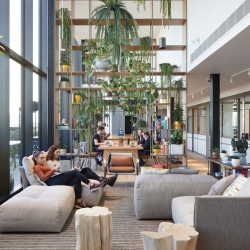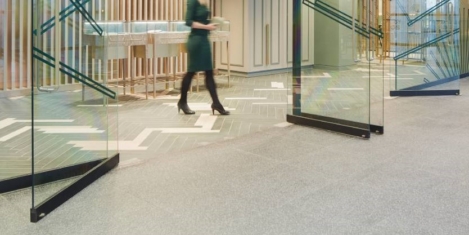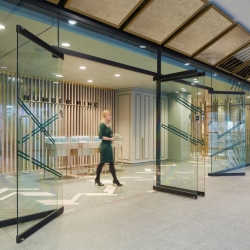To provide the best experiences, we use technologies like cookies to store and/or access device information. Consenting to these technologies will allow us to process data such as browsing behaviour or unique IDs on this site. Not consenting or withdrawing consent, may adversely affect certain features and functions.
The technical storage or access is strictly necessary for the legitimate purpose of enabling the use of a specific service explicitly requested by the subscriber or user, or for the sole purpose of carrying out the transmission of a communication over an electronic communications network.
The technical storage or access is necessary for the legitimate purpose of storing preferences that are not requested by the subscriber or user.
The technical storage or access that is used exclusively for statistical purposes.
The technical storage or access that is used exclusively for anonymous statistical purposes. Without a subpoena, voluntary compliance on the part of your Internet Service Provider, or additional records from a third party, information stored or retrieved for this purpose alone cannot usually be used to identify you.
The technical storage or access is required to create user profiles to send advertising, or to track the user on a website or across several websites for similar marketing purposes.
 The majority of U.K workers (83 percent) believe that those who work remotely full time cannot meaningfully connect with workplace culture. Just 17 percent feel that time in the office is unnecessary for fostering company culture. These are the findings from O.C. Tanner’s 2022 Global Culture Report which analysed the perspectives of over 38,000 employees, leaders, HR practitioners and executives from 21 countries around the world, including over 2,500 from the U.K. (more…)
The majority of U.K workers (83 percent) believe that those who work remotely full time cannot meaningfully connect with workplace culture. Just 17 percent feel that time in the office is unnecessary for fostering company culture. These are the findings from O.C. Tanner’s 2022 Global Culture Report which analysed the perspectives of over 38,000 employees, leaders, HR practitioners and executives from 21 countries around the world, including over 2,500 from the U.K. (more…)






 Research released by
Research released by 
 Architects and designers have always a had a thing for door handles. It’s the kind of detail they like and one of the most genuinely tactile features of a building. Architects from Frank Gehry to Zaha Hadid have worked on the designs of door handles for manufacturers.
Architects and designers have always a had a thing for door handles. It’s the kind of detail they like and one of the most genuinely tactile features of a building. Architects from Frank Gehry to Zaha Hadid have worked on the designs of door handles for manufacturers. 
 Programmes aimed at supporting employees’ health and wellbeing can also benefit their social relationships and reduce bullying, according to a new study by researchers from the
Programmes aimed at supporting employees’ health and wellbeing can also benefit their social relationships and reduce bullying, according to a new study by researchers from the 


 The 2021 Digital Etiquette Study by
The 2021 Digital Etiquette Study by 
 Hiding the bottom half of the face with a mask could have a detrimental effect on our ability to socially interact and share other people’s emotions, new research suggests. A
Hiding the bottom half of the face with a mask could have a detrimental effect on our ability to socially interact and share other people’s emotions, new research suggests. A 
 With the vast majority (86 percent) of UK businesses planning to offer employees greater flexibility around where they work, leaders are focused on ensuring employees feel included regardless of their location, according to new research from
With the vast majority (86 percent) of UK businesses planning to offer employees greater flexibility around where they work, leaders are focused on ensuring employees feel included regardless of their location, according to new research from 
 According to a
According to a 
 New research from
New research from 
 At a recent
At a recent 







November 3, 2021
The office of the future will be a leader-free, social-space
by Dawn Sharifan • Comment, Flexible working, Technology, Workplace design